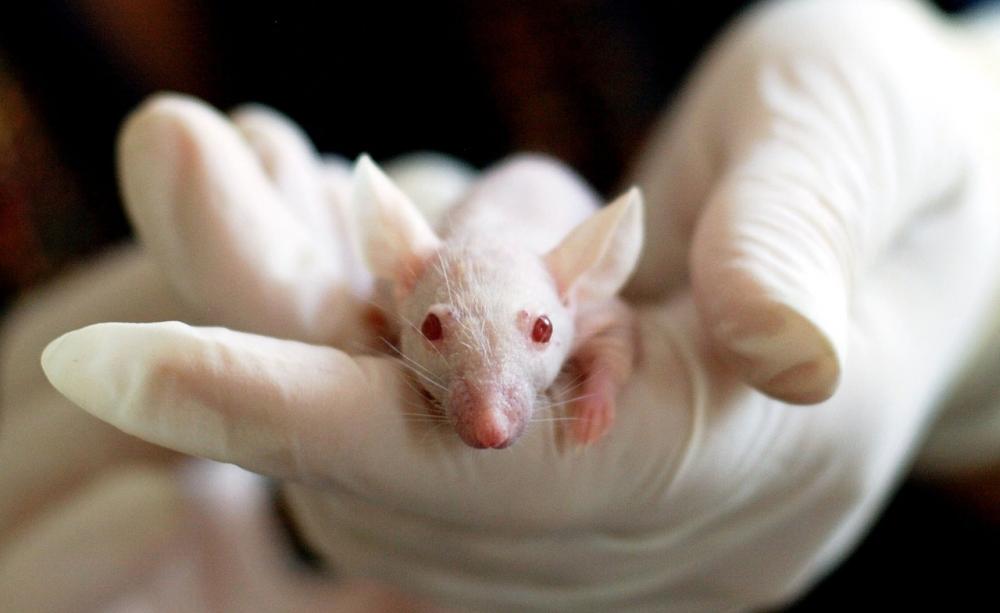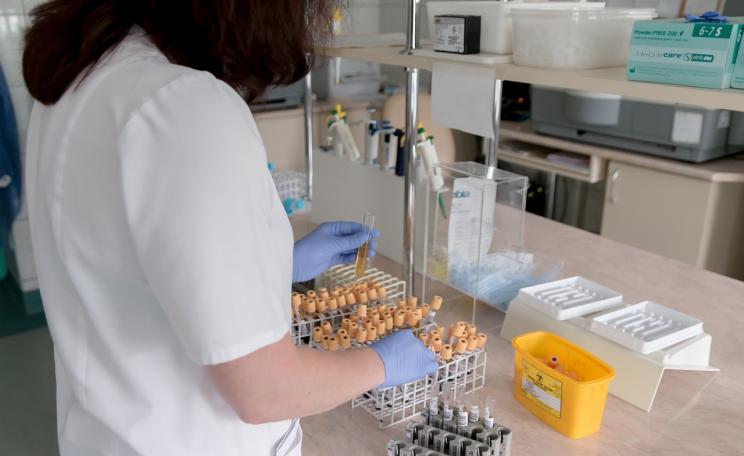It's no secret in the scientific community that experimenting on animals is unreliable.
It started with an irritated nose and throat. A few days later, my sense of smell and taste vanished, and I developed a tell-tale dry cough. My partner also fell ill, with worse symptoms than I had.
After a week of muscle pain, headaches, and fever, he thought the worst had passed. But then his fever returned with a vengeance. His airways burned, and he coughed uncontrollably. It was a terrifying few weeks.
Complete the Ecologist's 2020 Reader Survey.
Thankfully, the virus didn't affect his lungs and he has finally recovered. An antibody test confirmed our suspicions: we had both had Covid-19.
Unreliability
Having lived through Covid-19, I can tell you that it's no joke. We need a vaccine, treatments, and cures – and we need them fast. As a scientist, I know that's exactly why we must stop relying on cruel, inaccurate animal tests. Experimenting on animals is unethical, and it's wasting precious time, money, and lives.
Animals are not simply humans with tails or fur. Mice, rats, rabbits, monkeys, and other animals can feel pain and fear and suffer just as humans do, but their bodies often respond to diseases and drugs in entirely different ways.
Countless mice have been used in Covid-19 experiments, yet they don't contract this virus naturally and must be genetically engineered just to be susceptible to it. Those who are infected show only mild symptoms.
Primates don't develop severe Covid-19 symptoms either, yet they're commonly used as unwilling test subjects in these experiments as well.
It's no secret in the scientific community that experimenting on animals is unreliable.
It's no secret in the scientific community that experimenting on animals is unreliable. The US National Institutes of Health reports that 95 percent of drugs that pass animal tests fail in human trials because they are either unsafe or ineffective. And more than 90 percent of basic research, most of which involves animal experiments, fails to deliver treatments for humans within 20 years.
Inertia
So why are we still treating living, feeling beings like test tubes and wasting time and resources on methods that don't work? The answer is simple: inertia.
It's human nature to resist change. During scary and unprecedented events like the coronavirus pandemic, it's tempting to return to the familiar, even if we know that those old ways aren't beneficial.
But with so many lives in jeopardy, scientists can't afford to fall back on archaic methods. We must think critically and move beyond animal testing, which is inaccurate and ineffective.
Curiosity, innovation, and progress have always been at the heart of science, and brilliant minds have developed many cutting-edge, human-relevant methods that can be used to study Covid-19 and other diseases.
Forward-thinking researchers are now using three-dimensional reconstructed human respiratory tissue models, such as those from Epithelix and MatTek Life Sciences, to study coronavirus infection and screen for potential treatments.
At India's Gauhati University, scientists used advanced computer-simulation methods to determine which parts of the virus are best suited to triggering an immune response in humans.
Sciences
Summit, the world's smartest and most powerful supercomputer, is helping researchers at Oak Ridge National Laboratory in the US identify existing drugs that could be effective in treating COVID-19 in humans. Many of the drugs that are currently in human clinical trials were identified using similar methods.
Regulators are waking up, too. In a watershed moment, the European Medicines Agency, the UK Medicines and Healthcare Products Regulatory Agency, the Dutch Medicines Evaluation Board, and the US Food and Drug Administration have prioritised human clinical trials for coronavirus vaccines over some animal tests.
There is simply no ethical or scientific justification for subjecting unwilling, sentient beings to painful and lethal experiments. Our response to the coronavirus represents a crossroads: a golden opportunity to reimagine the way we approach science.
We have the tools, the precedent, and the ingenuity to leave crude, inaccurate animal tests behind. The only question is this: will we overcome our inertia and do so?
For the sake of animals suffering in laboratories and humans dying of Covid-19 and other diseases, we must.
This Author
Janneke Hogervorst is the science adviser for the Netherlands at PETA UK. She held postdoctoral positions in and lectured on cancer epidemiology at Maastricht University in the Netherlands and environmental health epidemiology at Hasselt University in Belgium.




